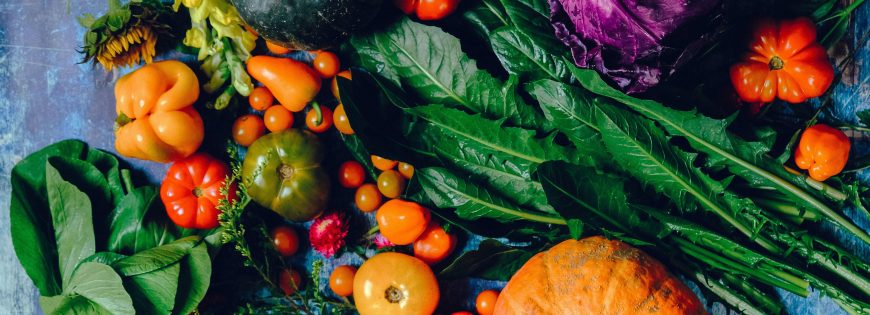When you explore organic foods, you’re creating a ‘thank-you’ chapter for your body, health and wellness, and healthy lifestyle. But did you know that the planet is thanking you, too?
Research shows that many of the foods that are most harmful to human health are also the worst for the environment. Choosing a better, more sustainable diet is one of the main ways people can improve their health and help protect the environment.
PWP only sources quality, organic produce. From meat to vegetables, everything is USDA Organic. Every ingredient is chosen and sourced purposefully — so you can be sure that you’re doing the best for your body (organic) and the best for your community (local) with each meal.
5 Tips to Make Eating Habits Sustainable
- Cut Red Meat from Your Diet
According to the PNAS, the environmental costs of producing red meat has taken a toll on the top environmental indicators — greenhouse gas emissions, degradation of soil and water resources, and disruption of ecosystems. It’s important to try and replace red meat with high-quality plant protein. In fact, soybeans, legumes, whole grains, nuts, and seeds are all great sources of plant-based proteins.
- The Life of the Party — Mushrooms
According to Food Science & Nutrition, mushrooms have been cultivated for centuries for their flavor and nutritional value — and adding just one serving of mushrooms to a meal significantly increases fiber and several micronutrients that we need, such as vitamin D and potassium.
- Say No to Cheese
Did you know cheese generates the third highest greenhouse gas emissions? According to the EWG, cheese produces high emissions because it derives from ruminant animals, which generate methane, a greenhouse gas 25 times more potent than carbon dioxide. Cheese also has a high carbon footprint because it requires a lot of milk — about 10 pounds for 1 pound of hard cheese produced.
- Prioritize Your Greens
Did you know filling your plate with more greens, vegetables and fruits is not only good for our health, but also produces benefits for the planet as well? Shifting to a more plant-based way of eating will help reduce freshwater withdrawals and deforestation. In fact, producing plant proteins requires about 100 times less water than producing animal proteins.
- Go Local
Here at Prepared with Purpose, we use organic produce — sourced locally to ensure optimal freshness, seasonality, and quality. We believe in supporting the local economy, working with extremely fresh fruits and vegetables and in-season produce. Our relationship with local farmers helps us to learn how the food was grown, when it was harvested, and even how to prepare it. Choosing locally-grown food can potentially reduce energy usage, decrease greenhouse gas emissions, and use fewer resources than typically expended to transport foods long distances.



